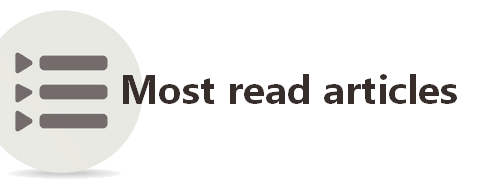An Economic Partnership Agreement between Europe and West Africa, if ratified by the European Parliament, would be a disaster for the citizens of Africa, but also for those of Europe.
Every rule comes with an exception. For once our newsletter contains no pictures. It is simply the text of an appeal to civil society organisations and elected representatives in Europe and in Africa. Our last chance to avoid disaster. Thank you for responding.
Appeal to civil society organisations and elected representatives in Europe and in Africa
initiated by Jacques Berthelot, Jean Gadrey, Susan George and Majdouline Sbaï
The European Parliament should not ratify the
“partnership agreement” between the EU and West Africa
On July 10 this year the 16 West African Heads of State signed a draft “economic partnership agreement” (EPA) between the European Union (EU) and the 15 Member States of the ECOWAS (The Economic Community of West African States) plus Mauritania, in Accra, capital of Ghana [1]. It is in fact a free trade agreement, which for the African states implies the abolition of 75% of taxes on imports from the EU and restrictive trade policies that go beyond the rules of the World Trade Organisation. . If this agreement is ratified by the European Parliament, it will be a disaster for the people of Africa and of Europe.[1]. It is the result of pressure by European multinational companies, the European Commission being now at their exclusive service and succeeding in carrying along African Heads of State who have remained indifferent to the repeated warnings issued for the past 14 years by campaigning civil societies.
The peoples of Europe stand to gain nothing from this. On the contrary, the agreement will favour the most productivist, polluting and employment crushing forms of agriculture, as well as certain industries, that are no less highly productivity oriented and exporters of second rate products, to the detriment of sustainable agriculture, food sovereignty and a transition towards ecological industries. It will encourage EU imports of raw material, instead of the adoption of strategies for a reduction of imported content in European production.
The peoples of West Africa, and beyond, all other Sub-Saharan African nations and the 14 small islands of the Pacific, have everything to lose by such agreements. First of all, 12 of the 16 West African states are among the least developed countries (LDC status) and will no longer be able to gain 10.6 billion € in taxes on products imported from the EU, sustaining a significant loss on their budget assets. What the EU promises in compensation is a mirage: it is nothing more than the usual contributions from the European Development Fund of 4€ per capita and per year! This is money from the member states that is not part of the community budget, plus a marginal recycled amount of already programmed money from other community funds. One bird in the hand is better than two in the bush.
But more precisely, for all the countries concerned, this is a hard blow to the entire range of peasant farming, subsistence agriculture, food security, domestic processing projects and regional industrial development. It will all be directly hit by disloyal European competition, employment will be destroyed and increasing dependence on world market prices will ensue. It is a programmed looting of natural soil and underground resources. Self-propelled regional development and regional integration projects will be sacrificed for the benefit of an export geared and carbon intensive economy, in which the inhabitants will have to make do with imported subsidised goods of dubious quality, in competition with their own domestic production.
One foreseeable consequence of this will be massive migration of populations deprived of prospects for a viable future in their home countries, and this in a context where the population of West Africa will increase from 302 million inhabitants in 2010 to 510 million in 2030! – as many as in the EU today and in 2030 – and 807 million in 2050, with climate warming particularly intense in this region.
We the citizens of the civil society organisations in Europe and in Africa are calling upon the elected representatives in Europe and the European Parliament : :
- to refuse to ratify this agreement, which is scandalous both from a humane and economic point of view ; ;
- not to sacrifice people on the altar of profits for a handful of multinational predators ;.
- to insist on independent impact studies ; ;
- to commit themselves to Cooperation and Solidarity Agreements (CSAs) which, unlike the EPAs, are not based on “free trade” at the cost of human freedom and emancipation.
End of document
Current events drive me to go further, at the risk of shocking. In a press review of September 25 Frédéric Couteau quotes Guinée Conakry Infos on Radio France International after the assassination of Hervé Gourdel : cite Guinée Conakry Infos :
« It is worth pointing out that any strategy of fight against terrorism exclusively by the use of force, is inevitably doomed to fail. In order to win the war against the terrorist monster, according to the Guinean site, it is necessary to take into account that the injustice, poverty, arrogance and condescendence which affect certain communities and regions in the world, constitute a nourishing sap for ideologies based on terror and chaos. » . »
Of this I am convinced: If the European Parliament does not wish to bolster the terrorism of the Islamic State (Deash), it should not ratify the “partnership” between Europe and West Africa., il
The paradox is that “Nigeria, which was still opposed to the agreement in June this year, has now become more conciliatory for the sake of “economic realism”, as it is hoping to win the support of the West in the fight against Boko Haram." (See also : "Libre échange : A qui profite le deal?” in n°1936 of Jeune Afrique)
As for ourselves we could help the European Parliament make the right choice by signing the appeal. I have done so, and the SEDELAN has done so. Those of you who wish to join in (individual citizens or organisations) should let us know. We will convey their signatures to the initiators of the appeal.
Koudougou, September 27, 2014
Maurice Oudet
Editor and President of SEDELAN
[1] Voir "Les principales raisons de ne pas ratifier l'APE UE-Afrique de l'Ouest" : http://www.solidarite.asso.fr/Articles-de-2014,684









